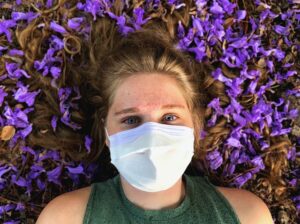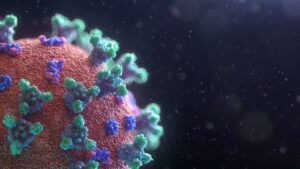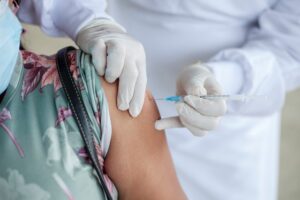
While most individuals recover from COVID-19 within a couple of weeks, some continue to experience symptoms or develop new ones in the post-acute phase.
Long COVID, also known as post-COVID conditions, long-haul COVID, post-acute COVID-19, long-term effects of COVID, or chronic COVID, or Post-Acute Sequelae of SARS-CoV-2 (PASC), is a condition where individuals who were initially affected with the illness continue to have a range of physical, mental, emotional, and/or psychological symptoms after they were infected.
What are the Symptoms of Long COVID?

Symptoms can vary widely, from cardiovascular issues, respiratory issues, and/or excessive fatigue are just a few of the symptoms. For some people, it may also include cognitive or psychological problems. Below is a more concise list of symptoms you may encounter if you have long Covid.
-
-
- Headache
- Rapid heartbeat (arrhythmia)
- Dizziness/lightheadedness when you get up from bed or you were sitting down
- Brain fog – Cognitive issues, such as difficulty concentrating
- Change in smell or taste. Yes, what was a major symptom in the years when Covid first came out, those with long Covid may still experience this
- Fever
- Stomach issues
- Muscle or joint pain
- Depression or anxiety
-
The CDC provides extensive instructions on what you should do if you suspect you have long Covid.
Are You Concerned About Long Covid if You Have Had Covid Before?

This is still under study and there has been no conclusive as to why some people are more susceptible to developing long Covid than others.
It has been reported that those who had a greater severity of COVID-19, particularly people who were hospitalized or who had health troubles are thought to have an increased risk of acquiring the infection for a longer period.
Additionally, people who did not receive the vaccine or were infected before the vaccines were developed are also thought to be at increased risk of COVID-19 infection.
In summary, it is safe to conclude at this time that the following people may be more a risk for long Covid:
-
- People who have had more severe COVID-19 illness, especially those who were hospitalized or needed intensive care
- Those who have been and currently are at high risk
- Those who are not vaccinated
You Can Still Get Long Covid if You Have Been Vaccinated
The unfortunate answer to this question is yes. Many studies are still being done regarding this issue, but more and more evidence has been pointing to the fact that regardless of the number of vaccinations you have been given, long Covid is still a possibility.
Can Long Covid be Spread Onto Others?

While those that have Covid can easily spread the disease, even if they were vaccinated, the answer to infecting other people when you have long COVID is no.
The reason is based upon those that have it are not contagious anymore.
What About Children?
Since the onset of Covid-19, most children have not sustained Covid as intensely as adults, but research is still underway to determine if those children who have previously acquired the disease are still at risk of long Covid.
In New York, NYSDOH recommends that all children, including infants and toddlers as young as six months old, receive all the recommended COVID-19 vaccinations to protect them from becoming more ill at a later date.
What Should I Do If I Find Out I Have long COVID?
If you have long Covid or you think you do, seek medical help immediately. If you live in New York State but do not have a health care provider, check out the NYS Provider & Health Plan Look-Up tool.
Your symptoms and severity will determine if you need physical or occupational therapy, mental health therapy, or both. If you need affordable health coverage, the NY State of Health can assist you in comparing health insurance plans and finding the right coverage for you and your family. NYS of Health plans includes no-premium health insurance, free preventive services, no co-pay for primary care, and low-cost prescriptions. Medicaid and Children’s Health programs are available.
Yes! If you are struggling with long COVID symptoms or suspect you have long COVID, don’t wait to seek care. Reach out to a healthcare provider as early as possible.
If you do not have a health care provider, use the NYS Provider & Health Plan Look-Up tool to find one that works with your health plan.
Because management of long COVID may require a team approach, a healthcare provider can help you get referrals to other providers who offer focused care. This may include a pulmonologist, cardiologist, or neurologist, as well as mental health experts, physical or occupational therapists, and social workers, depending on your symptoms and severity.
Bottom line – If you have had Covid after a week, and you still don’t feel well, you should seek medical help. As a further precaution, if you are tested positive for the disease, seek the advice of your doctor about what you can do to prevent long Covid.
